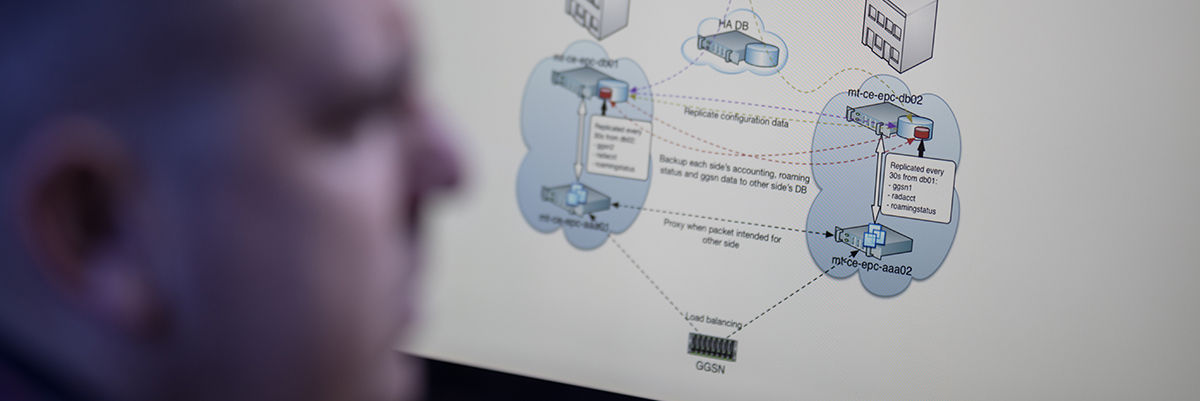
Working with Network RADIUS
Our goal is to hire good people, no matter what their location. The current team are located in Canada, France, the UK, and Brazil. We stay in close communication via email, chat, an internal Wiki, and a “kanban” task tracking system.
What we do
Our work involves building and supporting custom FreeRADIUS solutions for our customers. While there is of course a RADIUS component, a good part of what we do is general Information Technology (IT) or system administration work. This work involves using load-balancers and database to provide scalable and stable production systems. These systems are fully documented and tested before they are turned over to the customer.
Projects range from a few days to a few months, depending on the needs of the customer. As small company, everyone is involved in the daily operation of the organization. We offer significant opportunities for personal learning, including direct interaction with the customer.
Technologies involved are RADIUS, SQL, LDAP, Redis, SaltStack, VRRP, DHCPv4, DHCPv6, shell scripting, C programming, and general TCP/IP networking. Knowledge of FreeRADIUS is beneficial, of course.
Why Network RADIUS?
Aside from the financial incentives, working for Network RADIUS has some unique advantages.
Developers
Unlike with closed source products, any code you develop for FreeRADIUS will be published in the project’s public code repository. With every commit you’ll be adding to your portfolio, and building your reputation in the Open Source community.
FreeRADIUS has the distinction of being one of the few long running (twenty years at time of writing) Open Source projects with an ultra modern C code base. If you want to learn what C development looks like in the 21st century, working on FreeRADIUS offers a comprehensive and immersive experience.


SysAdmins and DevOps
When working with Network RADIUS you’ll be entering a very unique and varied problem space. One week you might be helping a University setup WiFi access and join international roaming federations, the next you might be building a DHCP solution that needs to be fault tolerant and scale to tens of millions of subscribers.
We use best in class tooling, and have an engineering first approach to systems development. Working with us you’ll learn best practices for modern system administration, management and monitoring. You’ll also get the genuine satisfaction from doing a job well, with a minimum of arbitrary constraints.

